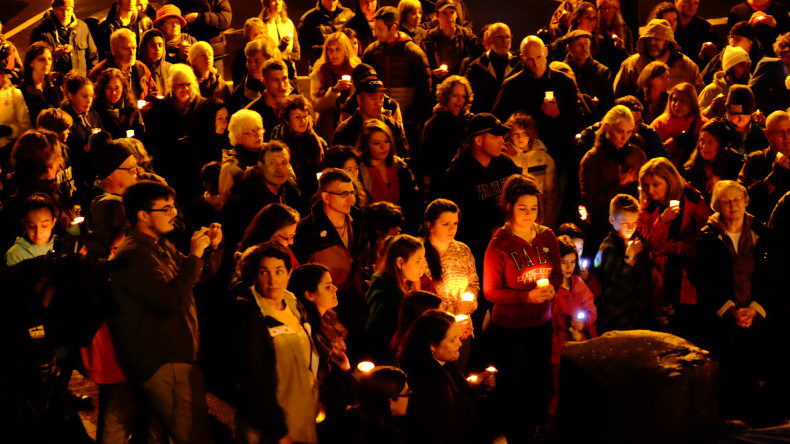 This post was first published in March of last year; sadly, it’s more relevant than ever.
This post was first published in March of last year; sadly, it’s more relevant than ever.
On February 29, after having lunch in Hood River, Oregon, Kozen Sampson drove to a quiet neighborhood to take his dogs for a walk. He was getting out of his car, he says, when a man with brown hair approached and kicked his car door. The door smacked Sampson in the ear, knocking his head against the door frame.
Then Sampson, stunned and bleeding, heard his assailant say: “F—ing Muslim!”
Sampson has been a Buddhist monk for many years, and he was wearing his customary plain brown robes. He’s the founder of the Mount Adams Zen Buddhist Temple in Trout Lake, Washington—about 30 miles from Hood River, and not far from where I live in Washington state—and after his attacker ran off, he managed to stop the bleeding and drive home to the temple.
Sampson initially decided not to report the incident, but a friend convinced him that it needed to be made public, so on March 2, he called the Hood River police. (The police have not yet identified any suspects.) Later that week, Sampson told the Hood River News:
I am happy it happened to me and not to a Muslim. My biggest concern is for how anyone has to live with the fear and the distrust and the possibility of an assault.
I am happy it happened to me and not to a Muslim. I’d like to think that’s how I’d react to a whack on the head from a bigot, but I’m not sure I have it in me.
Violence, it appears, is contagious. But research suggests that compassion is contagious, too: When people see others performing acts of unexpected goodness, they often experience a feeling that psychologist Jonathan Haidt calls “moral elevation.” People who feel elevation, Haidt and others have found, report an increased desire to help others and to become better people themselves. He writes:
If frequent bad deeds trigger social disgust, cynicism, and hostility toward one’s peers, then frequent good deeds may have a type of social undoing effect, raising the level of compassion, love, and harmony in an entire society.
We could use an epidemic of moral elevation. In the weeks after the Paris and San Bernardino terrorist attacks late last year, hate crimes against Muslims-Americans and U.S. mosques tripled. On Feb. 26, two days before Sampson was attacked, Donald Trump told attendees at a campaign rally that he thought waterboarding was “just fine” — “if you want to go a step above, or two or three steps above, that’s O.K. with me, too” — and complained that police were treating protesters at his events too gently. “You see, in the good old days, law enforcement acted a lot quicker than this,” he said as a protester was escorted out. “A lot quicker. In the good old days, they’d rip him out of that seat so fast … ”
More and more conscientious people—from many points on the political spectrum—are speaking out against Trump’s violent rhetoric, and doing what they can to contain its effects. While quarantining is a necessary emergency response, these times call for a counter-infection, too. Sampson’s empathetic, elevating response to his frightening experience, in other words, might be just the sort of thing the doctor ordered—for all of us.
On March 11, some 150 people held a candlelight vigil in Hood River to show support for Sampson and for a more tolerant community. “There are some politicians who have people riled up as they seek to build their power base,” Sampson observed. “They are not seeing everyone as a part of the human family. We need to find a kinder way to approach our differences and look at the rest of life.”
Photo of the vigil in Hood River by Casey Peifer. Used with permission.